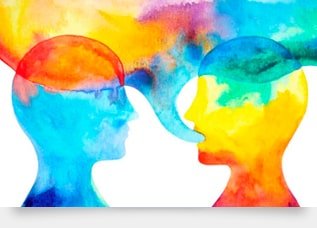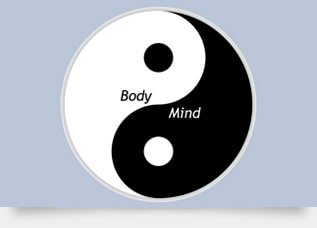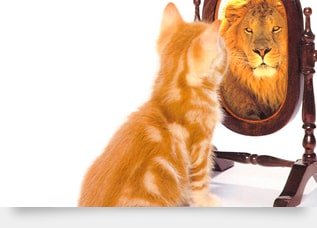Frequently Asked Questions

Think of psychotherapy as a process, and that process of psychotherapy is a journey of discovery and a ticket to freedom. Psychotherapy treatments are based on the belief that emotional difficulties and irrational behaviors are the result of thoughts and feelings raised outside of a person’s awareness. By exploring and working through these issues in the safety of a trusting relationship with your therapist, you can experience lasting changes.
Psychotherapy is about understanding where those irrational feelings, beliefs and behaviors come from. It is this increasing awareness which enables patients to change their thoughts and behaviors and thereby, through the psychotherapy process, change their feelings by providing a different perspective in how to see their life.

People are attached to their “stories,” and to symptoms they may have such as anxiety, depression, phobias, relationship difficulties, addiction, etc.. They may even be attached to an event in their life such as, “I was the troublemaker in my house,” or “I was abused,” as if those symptoms or events made up their whole identity. They got lost and then felt trapped in the limiting beliefs of their stories. “I am an addict” can be a very entrapping belief for an individual who is struggling because they are unable to recognize anything else about themselves.
Therapy is a partnership in which therapist and patient collaborate in the discovery of who the patient really is, what they want, and through the rebuilding of their life, freeing themselves of what interferes with life. It is in this psychotherapy process and the interpersonal relationship with the therapist where the patient frees their self of what interferes with life.

Which pain comes first, emotional pain or physical pain? – When physical illness manifests itself, we are not accustomed to considering that there is usually a link between our current physical processes and our life situations. We’ve surely all heard the stories about Monday morning heart attacks, but we may not be aware that there is an imbalance – an emotional disparity – that expresses itself through our physical instrument- our body. Emotional health affects physical health. Good physical health entails good mental health. This may be the first time you have been introduced to this concept. But how often do we behave as though there is no connection between the two, only later we are surprised to discover that after undergoing a long period of emotional stress, our physical health has suffered?

We view disease as something alien to the sick person, something horrible and unfair that senselessly possesses him or her. It is seen as a breakdown of the body that must be quickly repaired so that the sick person may continue carrying on with their habitual life. Sometimes, through efforts to be ‘cured,’ we are treated as though we are a malfunctioning automobile, where a part has become damaged, and merely needs to be removed or, if another part is available, it is replaced by a newer, better one. I believe this is a shortcoming of our unfair dependence upon modern medicine, and despite great therapeutic discoveries and colossal investments in the fields of research, the same percentage of people are getting sick as in ancient days.
Traditional medicine can fall short because it cannot do it all. It is not working together with all of the components which are involved with the human patient: the emotional, environmental, and relevant events leading up to the health event. Traditional medicine’s attention is focused only on the body – on the functional, on the physical, and not holistically. What is overlooked is that within every human’s body there is a feeling and thinking ‘being’ and any manifestation of the physical world has already been created in their world of thoughts and ideas, in their in-visible, in-terior world.
Therefore, we should assume that it is not just the body that is sick – it is the human being that is ill. The body is the house one dwells in. The human being has but one illness: the loss of harmony and balance in the various areas of one’s life, a lessening of conscience. That is to say, we have disconnected from our feelings, we have disconnected from what is happening to us. When this disconnection occurs, we become ill, be it through a bout of anxiety, or depression, or we ‘take it out’ on our body, for instance, with a heart attack. To be healthy we need to admit to having those aspects of exterior or interior reality that we currently avoid or reject. We often ignore them; we do not recognize them, we do not take them on, and we do not want to assume to responsibility this implies.

Here is why we all need to pay attention to what is going on inside us emotionally:
If we decline to consciously take on a part of our self, then what was rejected emotionally will be introduced physically into our body, manifesting itself as symptoms, so that we have no choice but to experience what we have disallowed. When one does not speak out, the body screams. The body thus becomes the mirror to our emotions. Our body shows us that which our emotions cannot acknowledge. It makes visible that portion of our soul which is costly to admit and to do something about – the illness we accustom ourselves to living with, becomes manifested as disease in our body. We then have no choice but to seek the treatment of a physician because we have damaged the body, an equally high cost as denying our emotions. Throughout history, different cultures have practiced various approaches to healing. All approaches relate to a transformation of consciousness, that is, to experience the profound sense of life, returning to the human being. Today, many individuals seek healing through a return to the spiritual condition which they lost or to find what was never before acquired in the labyrinthine and unnatural ways of modern culture.
Traditional medicine fights disease with the goal of eradicating it. This is something which is impossible to accomplish since, as we have asserted, the human being participates in polarity, also takes part in illness, and therefore sickens. What this strictly scientific approach impedes is the proper evolution of the human being, who does not wish to experience illness, which adds onto the unrecognized emotional pain with very recognizable physical suffering so that it may at last be heard. Therefore, to imagine that we will heal ourselves by exclusively taking some pills, or by removing an organ, or by observing a certain diet, is truly irresponsible. We heal the emotions, we cure the body. Healing only occurs when the illness is transcended, since, in being healed, the sick person integrates what previously was rejected on all planes of being: body mind and spirit, thus advancing his or her level of consciousness. We Awaken from Within. In this way, and contrary to what is popularly believed, we realize that disease is not something bad, on the contrary, it is a reaction by our body and our mind steering us towards a state of equilibrium – in health and in unity – from that which we had deviated. Many people fail to address this unity and sadly, they remain in denial. When we live in denial and face all kinds of problems, struggles and disorders in dangerous isolation, we end up living with a sense of shame and secrecy and even more unfortunate, our physical illness progresses.

Effective Holistic Psychotherapy and Counseling for Life Transitions
Judy Wizelman
Director, Psychoanalyst, Ph.D, L.M.H.C., Consultant and Motivational Speaker
T: 305.975.5541 | E: info@awakenmiami.com


